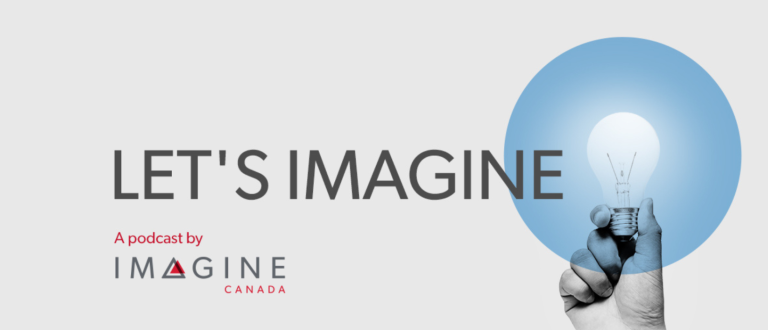Tariff impact, the DEI backlash, and growing Canadian nationalism are some of the trends we’re keeping an eye on.
So far, the second quarter of the year has been defined by the Canadian federal election and the breakneck speed of global trade disruptions. Uncertainty is the name of the game right now, and there certainly hasn’t been a dull moment in a while. In this edition of our quarterly trends series, we examine the current economic situation, Canadian nationalism, and whether the backlash to DEI is being felt in the sector right now.
What we can learn from past recessions to understand current economic turmoil
At the end of 2024, the economic situation seemed to be stabilising after an extended period of high inflation; In early 2024, 68% of nonprofits expected cost-related obstacles, but that had fallen to 51% in Q1 of this year1. Unfortunately, at the same time, a new economic threat emerged: a global trade war spurred by the US. So far, the trade war has been a story of twists and turns, surprise announcements, and quick reversals.
The tariffs have themselves created economic turmoil, but so too has the incredible uncertainty. The Bank of Canada is reporting a deterioration in business sentiment, resulting in delayed decisions, weaker sales expectations, and fears of higher near-term inflation. A third of businesses are now operating under the assumption that there will be a recession in Canada in the next year, up significantly from previous quarters.
A recent survey from the Charity Insights Canada Project gives us insight into viewpoints on the current situation. Only 14% of charities say they’re seeing no impact, while large swaths of the charitable sector are experiencing reducing funding (48%), impacts on the cost of program and service provision (37%), and increased demand for services (33%). Charities are also seeing impacts on travel, international operations, and salary costs. One very concrete example of impact is at Edmonton’s food bank, which in March reported that they were expecting food costs to jump to $6 million, a 50% increase over the $4 million they budgeted for.
We can look to the recession sparked by the 2008 financial crash to understand how the sector may be impacted if the tariffs cause a significant slow down. The Canadian economy went into recession in Fall 2008, but many business indicators rebounded in the first half of 2009, monthly GDP recovered in Fall 2010, and employment losses had been absorbed by the beginning of 2011. The recession was milder in Canada than in other countries, but still had a significant impact on our economy. During this period, Imagine Canada fielded a series of surveys of charities that used four questions about ability to fulfill mission, levels of demand, ability to cover expenses, and whether their existence was at risk to measure organizational stress. In late 2009, half of operating charities were under stress, including 14% under high stress. Two years later, in late 2011, the number of operating charities under stress had dropped very slightly to 48%, but the proportion under high stress had risen to 17%. By late 2013, the last survey in the series, the numbers remained virtually unchanged from two years prior. Unfortunately, we don’t have baseline data from before or after this recession as a comparison point and no two recessions are exactly alike in terms of their severity, contours, or responses from government. However, this series of surveys can give us an insight into how a recession may impact our sector.
Back in the present day, the federal government has announced numerous tariff relief measures. While they are mainly quite narrow and targeted on the businesses most directly impacted, the government has temporarily expanded eligibility to the EI Work-Sharing Program to include nonprofits experiencing a reduction in revenue levels due to tariffs, whether directly or indirectly. Unlike under the normal rules, this includes revenue losses from reduced grants, donations, memberships, investment income, or other funding disruptions. During the COVID-19 pandemic, the sector was initially excluded from numerous broad economic relief measures and had to fight hard to be made eligible. The sector’s inclusion in this program from the beginning will both provide concrete support to some struggling organizations and is an indicator of the federal government’s growing recognition of our role in the Canadian economy.
Canadian nationalism goes mainstream
In response to both the trade war and threats to Canada’s sovereignty coming from the US, many are boycotting American products and intentionally supporting Canadian alternatives.
In some cases, nonprofits and charities are starting to find alternative supply chains for crucial goods and services, whether out of principle or to minimize costs on tariffed items. The Ontario Nonprofit Network has published legal information for organizations, especially foundations, in that province who are looking to move their portfolios into Canadian investments. Others in the sector are seeing this as a moment to try to unify the country behind Canadian values that the sector upholds, such as democracy; Diversity, Equity and inclusion; health care; and gender equality.
Backlash to Diversity, Equity and Inclusion doesn’t seem to be hitting the Canadian nonprofit sector yet
Over the past several months, there have been media reports about a growing backlash to DEI initiatives, mainly stemming from the American context. In the US, the government and numerous large institutions and corporations have been rolling back equity-focused programs. America has considerable global cultural influence, so many reasonably fear that this rhetoric will spread to the Canadian context.
But what is the story in the Canadian nonprofit sector right now? In March, 1% of charities reported that they had decreased their focus on DEI over the past year and another 8% said it had never been a priority. However, ⅔ of charities reported that DEI had maintained its priority level and nearly a quarter reported that it had become a higher priority. Many organizations reported expanding equity-focused practices. When citing challenges, some organizations pointed to the politicization of this work, but many others mentioned long standing practical hurdles such as a lack of expertise in their teams or a shortage of funding to support DEI initiatives in a resource-strapped sector.
Overall, these survey results show that support for DEI in Canada’s charitable sector is still relatively high. Additionally, some in the sector are doubling down on their commitment to equity. In March, the Foundation of Greater Montréal released a statement reaffirming their commitment to their values of justice, equity, diversity and inclusion. Jean-Marc Mangin, President & CEO of Philanthropic Foundations Canada, wrote in a recent blog post that “during these uncertain times, we cannot forget our commitments to equity-seeking communities, notably Indigenous Peoples, especially as Canada marks the 10-year anniversary of the Truth and Reconciliation Calls to Action this year.” Others are using the 2025 federal election as an opportunity to highlight equity issues, from the Enchanté Network’s Pride at the Polls campaign to the Ontario Council of Agencies Serving Immigrants’ Vote for Equity for All initiative.
However, this is an evolving issue, and we’ll need to continue to monitor over time to understand whether equity is losing ground in our sector.
1 Statistics Canada. Table 33-10-0917-01: Business or organization obstacles over the next three months, first quarter of 2025 and Table 33-10-0772-01: Business or organization obstacles over the next three months, first quarter of 2024.


